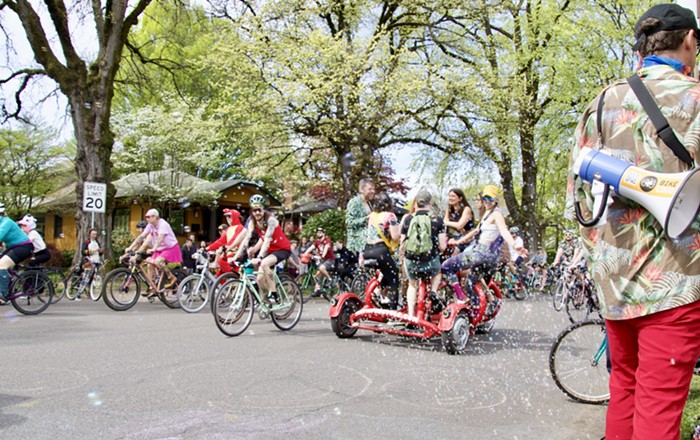Today, Portland city council signed off 4-0 on a contract with Portland-based Alta Bike Share to roll out a bike sharing system in the central city.
Alta has run into trouble launching New York's bike share system, where the company is essentially caught in a messy battle between the contractors that build the hardware and software for their bike share system. That program is now slated to launch in May and, regardless, Portland city commissioners are confident that Alta will be able to handle Portland's plan for 75 bike share stations hosting 750 bikes citywide.
Bike share systems exist in 26 other American cities already and function sort of like Zipcar for bikes. Anyone can use a credit card to check out a bike for short trips from a high-tech kiosk, paying a set price per hour to ride the bike wherever they like, then return it to any station. When launched next year, the system aims to increase the number of Portlanders and tourists turning to bikes as the method-of-choice for trips under three miles.
The hang-up for Portland's system turned out to be not price or subcontractor battles but helmets. Commissioner Amanda Fritz—a nurse, of course, wary of head injuries—is not sold on the idea of renting hundreds of bikes to people who would pedal around without helmets. I'm not going to delve into the pro-con war on helmets, but some poor transportation bureau staffers likely will over coming months. In approving the bike share contract today, Commissioner Fritz added an amendment that directs the city and Alta to explore ways to make helmets part of the bike share system (pdf). We might wind up with an option Alta pitched in Vancouver, BC: helmet vending machines.
Now as for the money...
Bike sharing is rather expensive, with start-up costs for Portland's system running to $4.59 million. Though the transportation bureau is reserving the right to spend up to $20,000 in city funds on the system if needed, the current contract calls for spending no local money on the system, instead using $1.8 million in federal funds and securing $2.79 million in private sponsorships (New York's bike share system, for example, is sponsored by Citibank). Operations costs will run to $1.85 million annually, covered entirely by user fees and sponsorships. The plan initially raised the ire of some equity advocates, arguing the federal funds Portland is using to bankroll the project could have been better spent.
But at today's hearing, Office of Equity head Amanda Fritz and the Coalition of Communities of Color were on board. "Portland's bike economy has not made significant investments in Portland's communities of color," said Coalition of Communities of Color Director Demi Espinoza. "Bike share is a significant investment."














